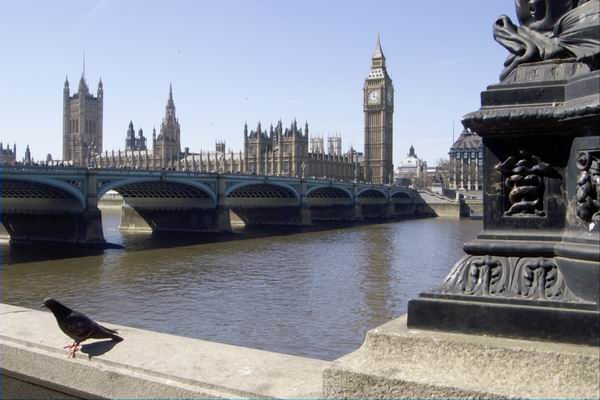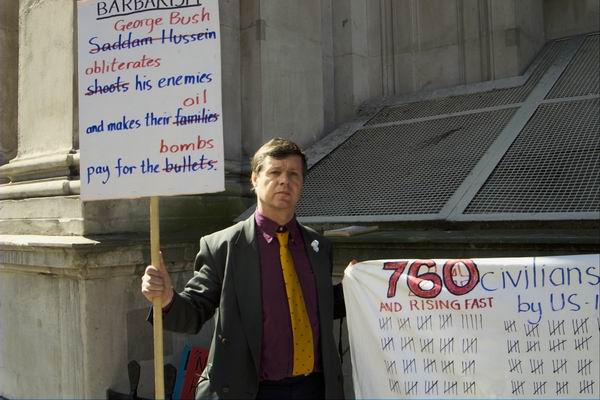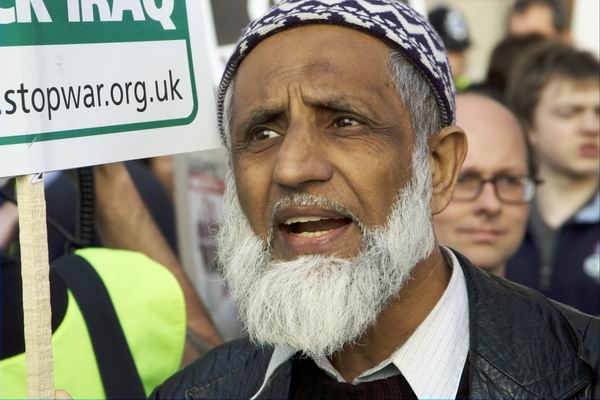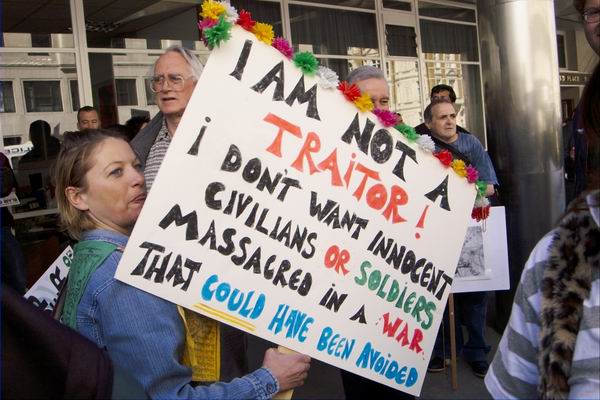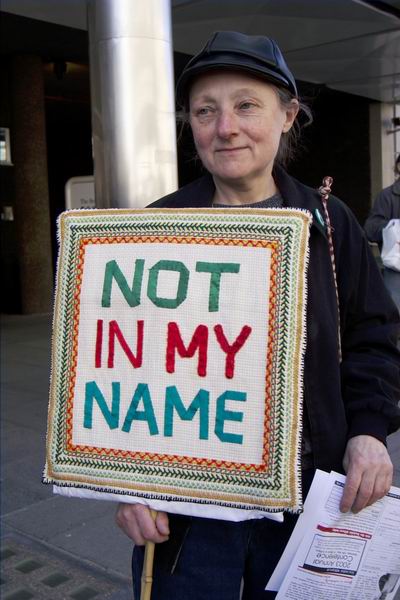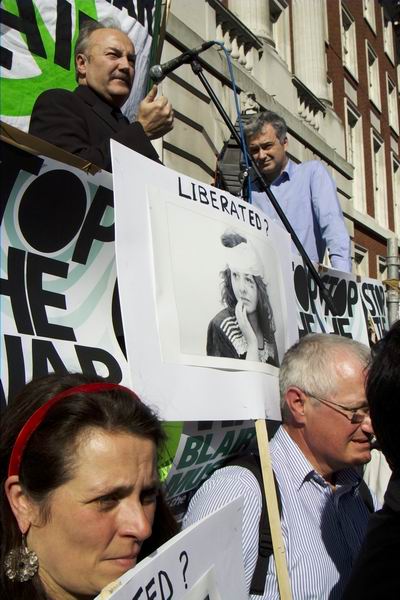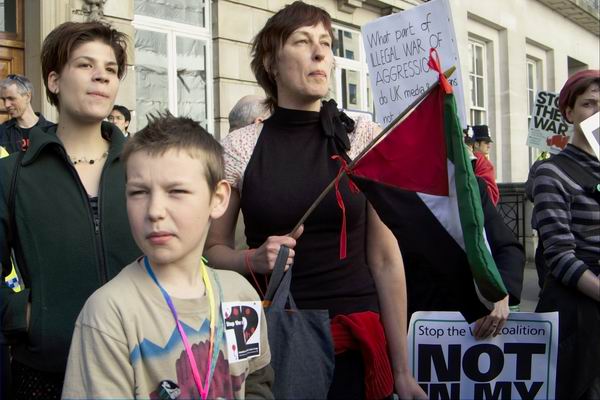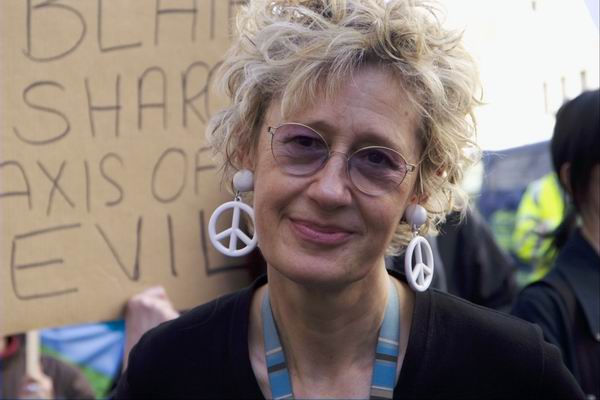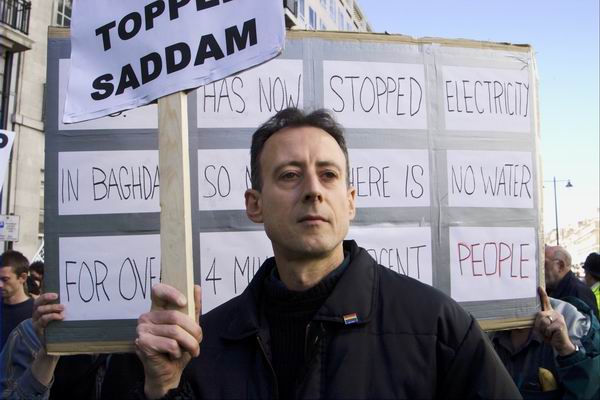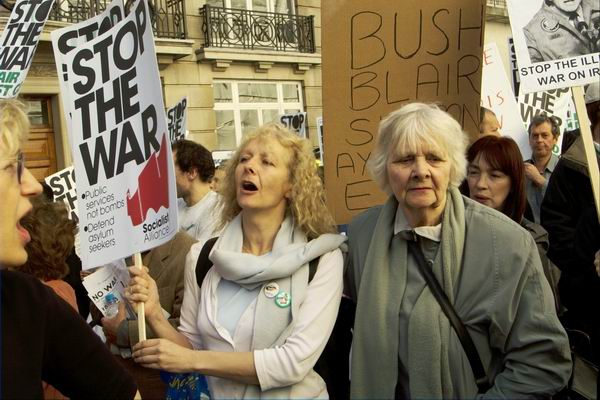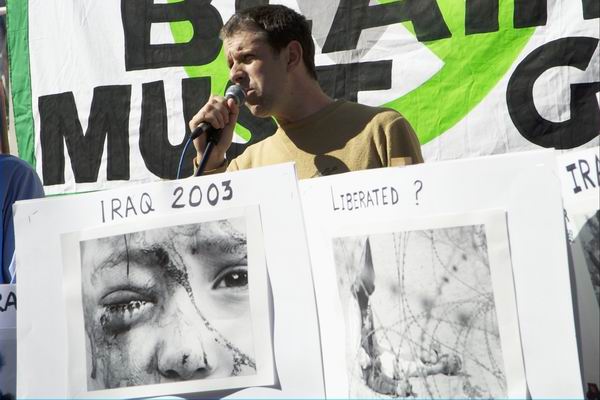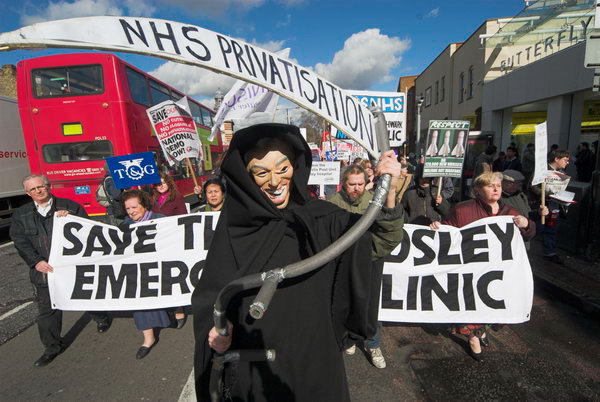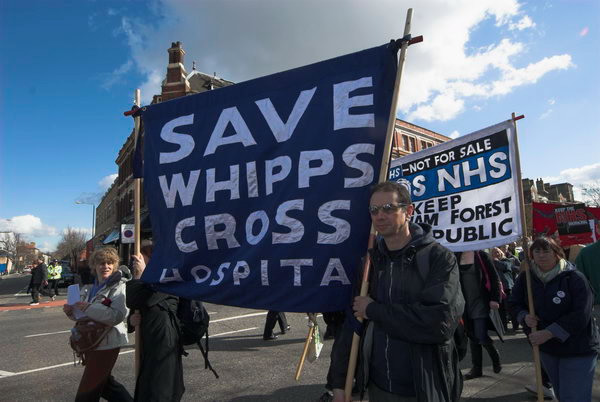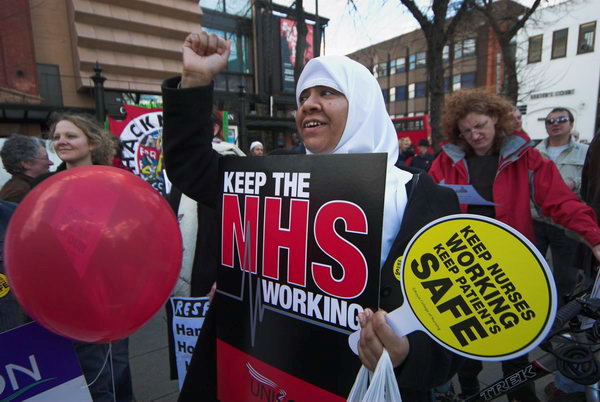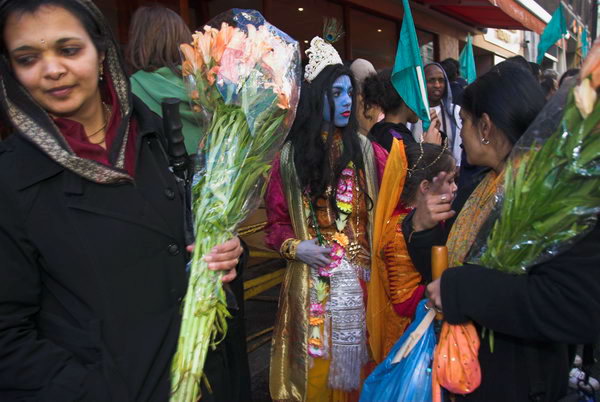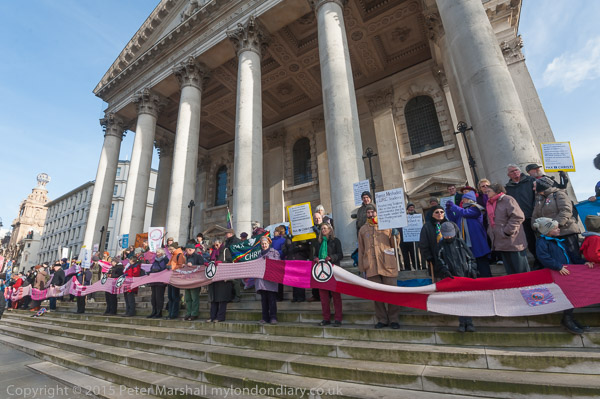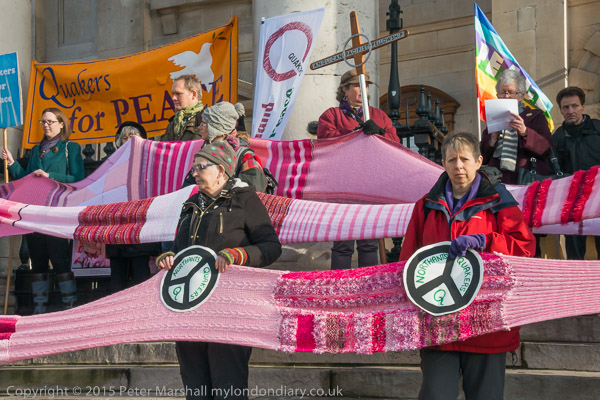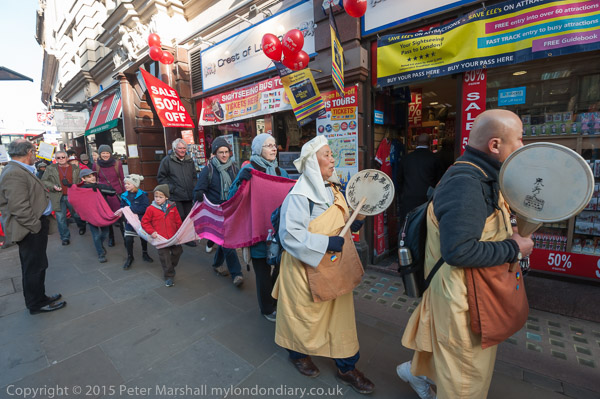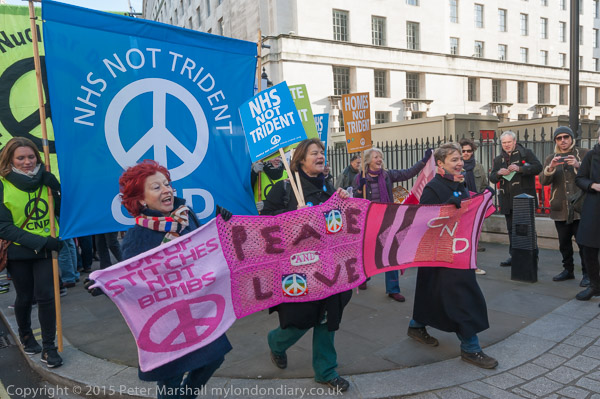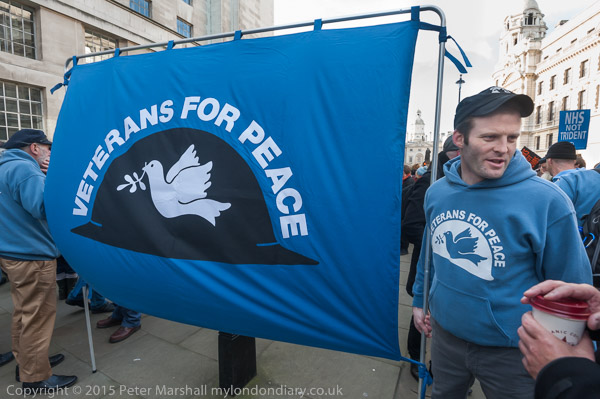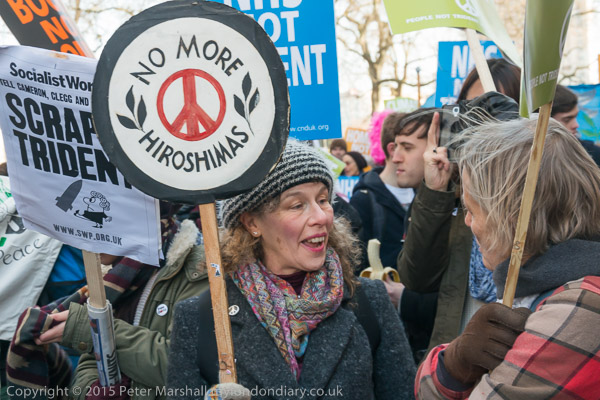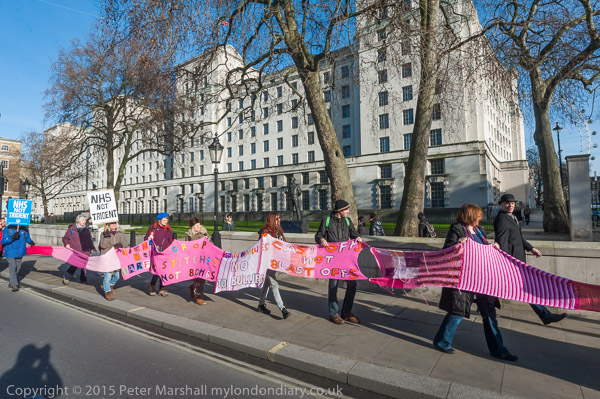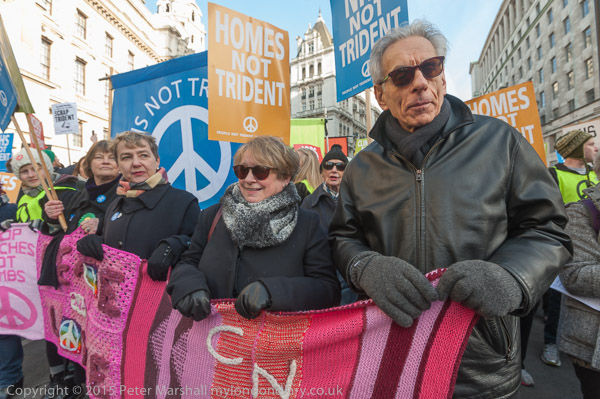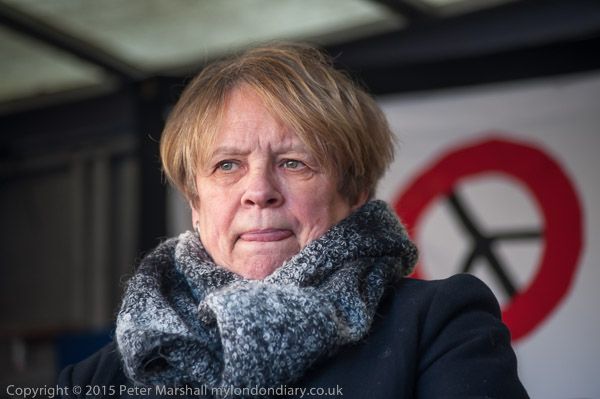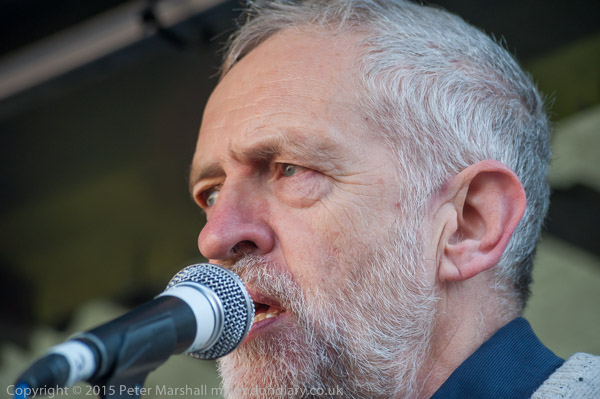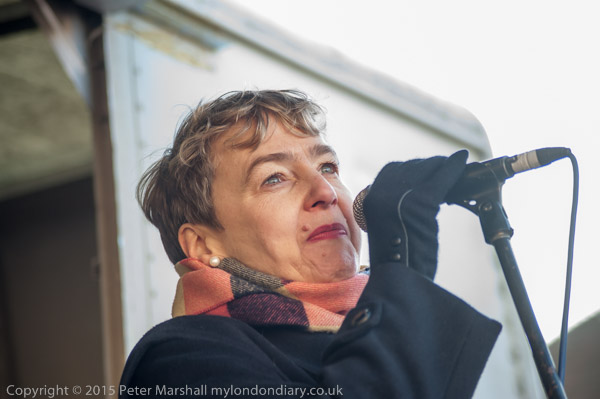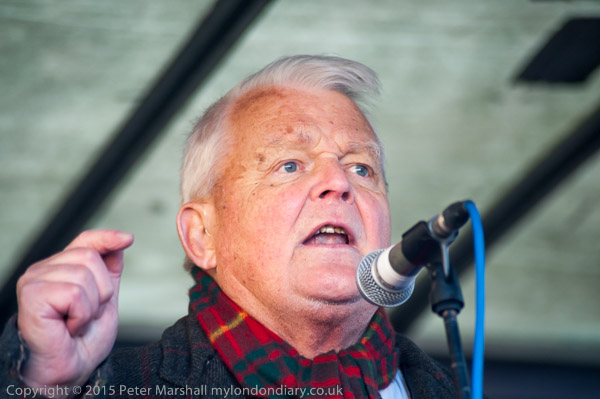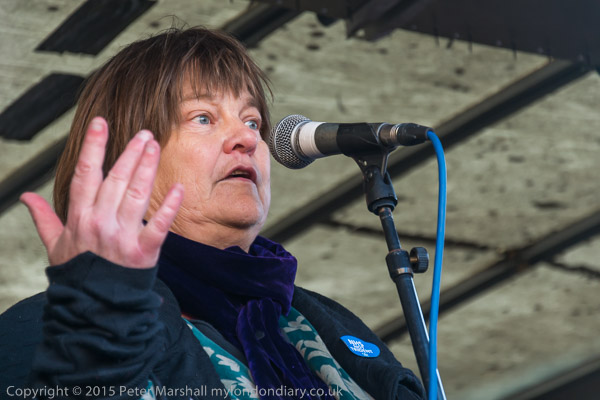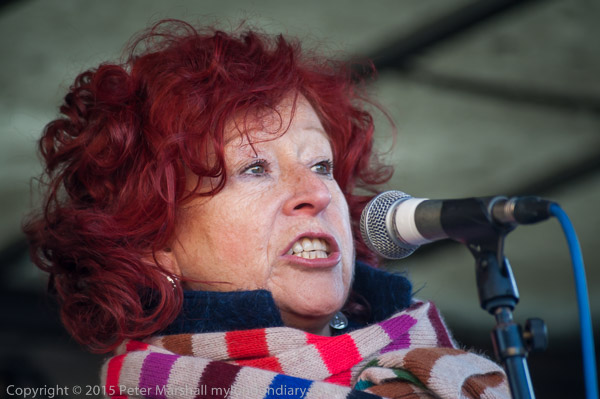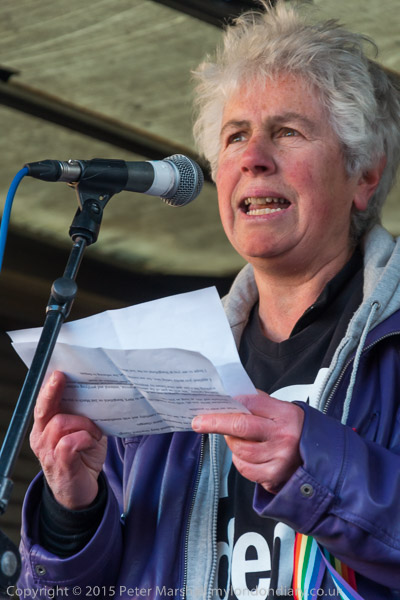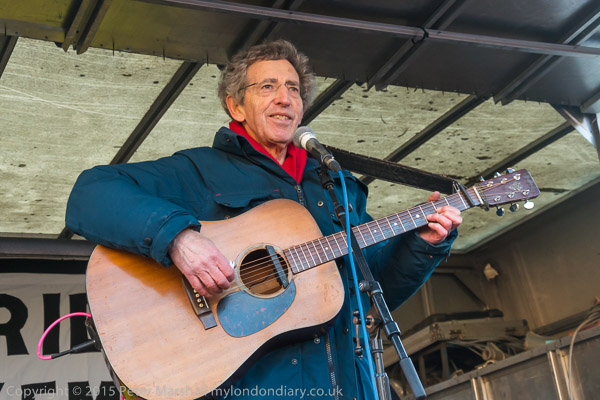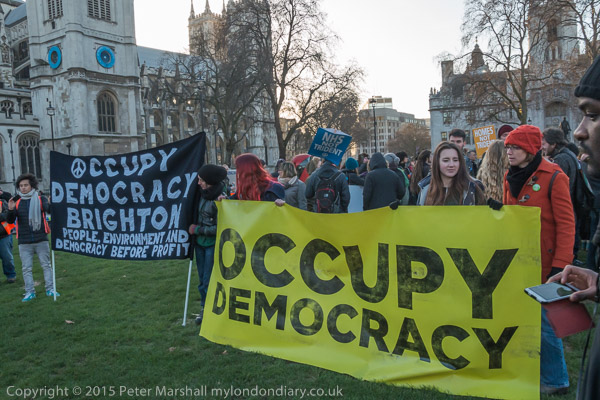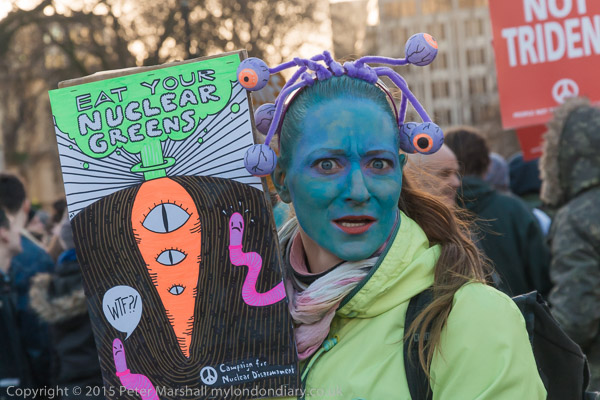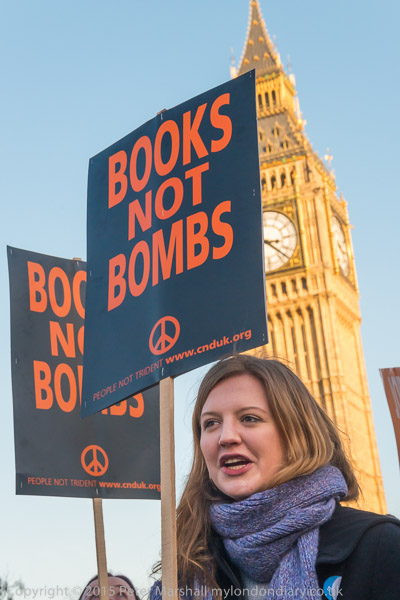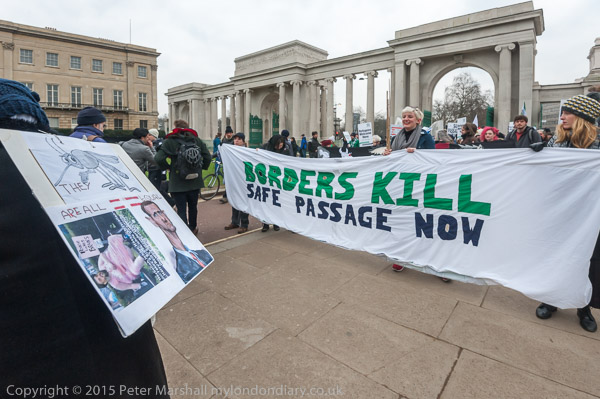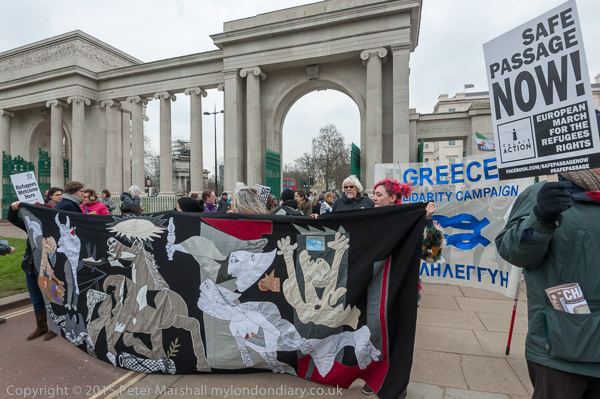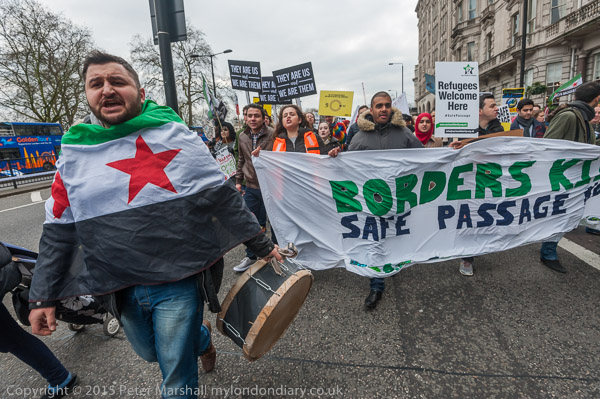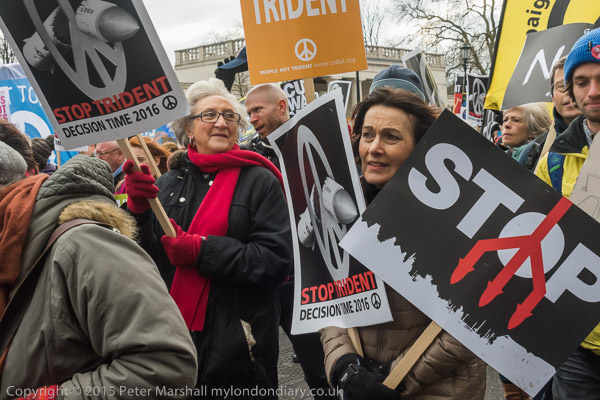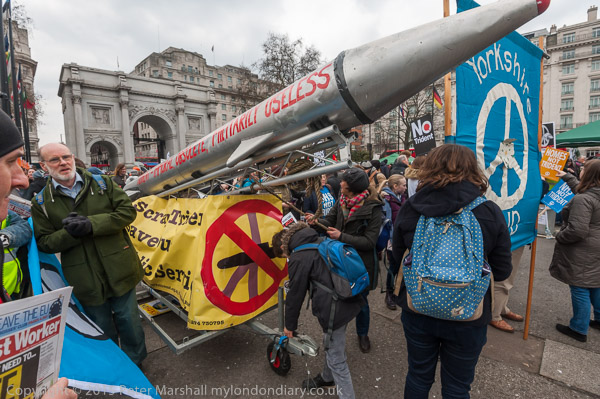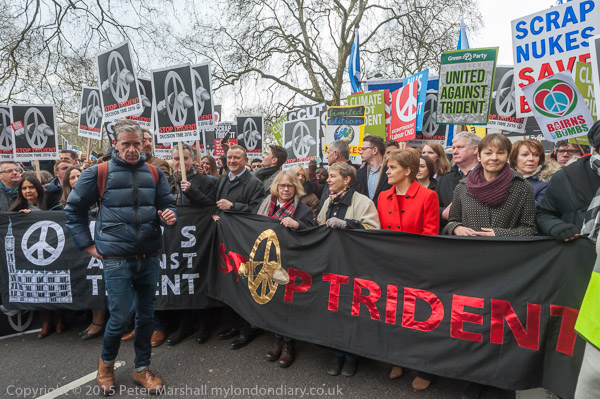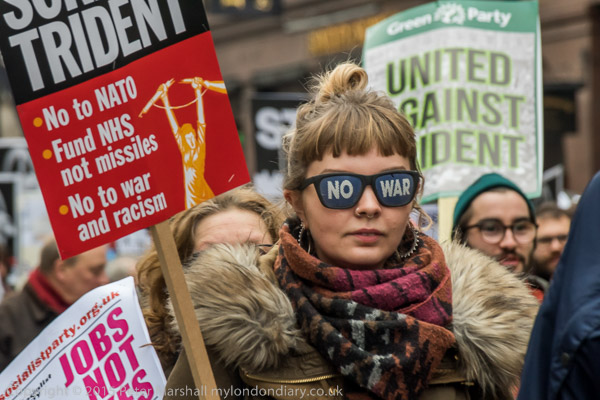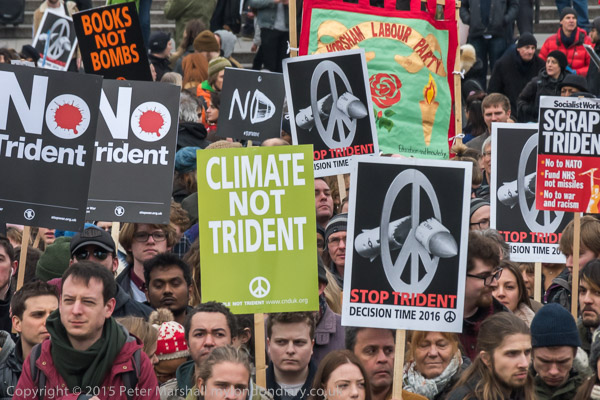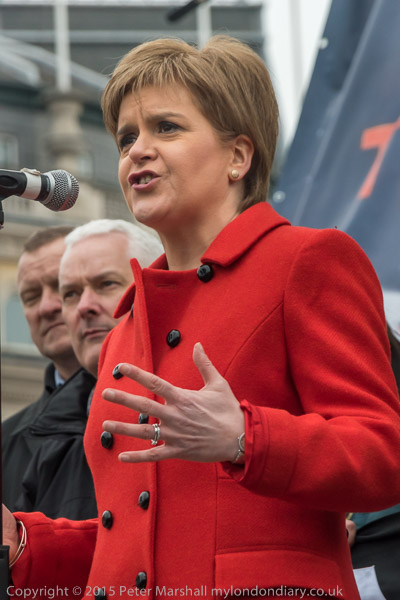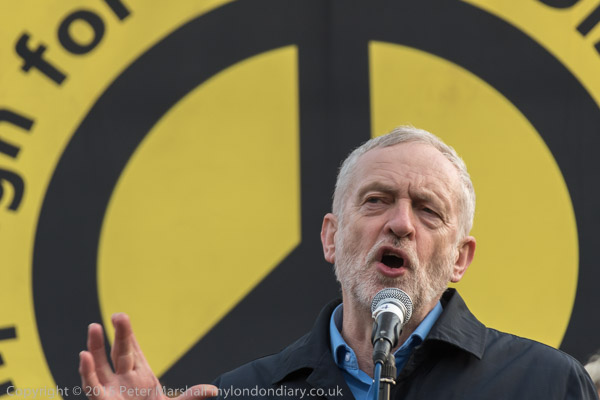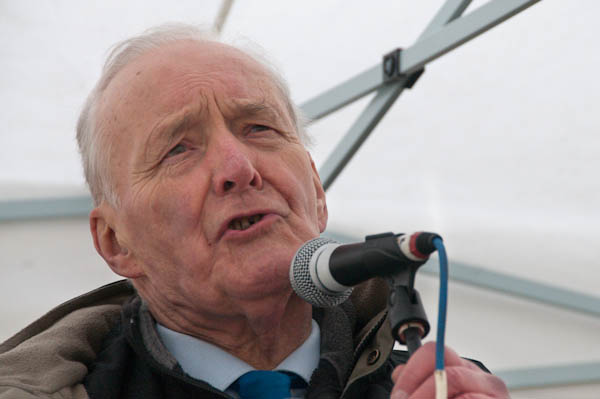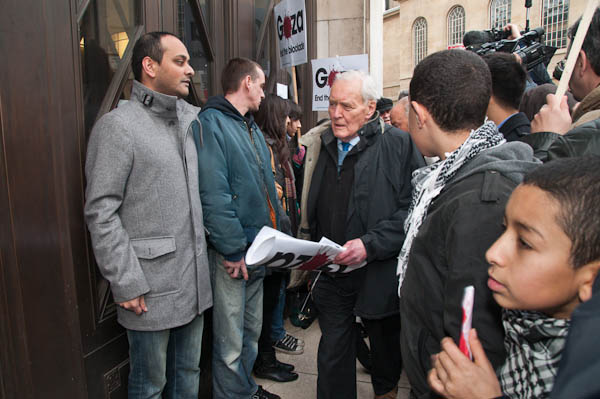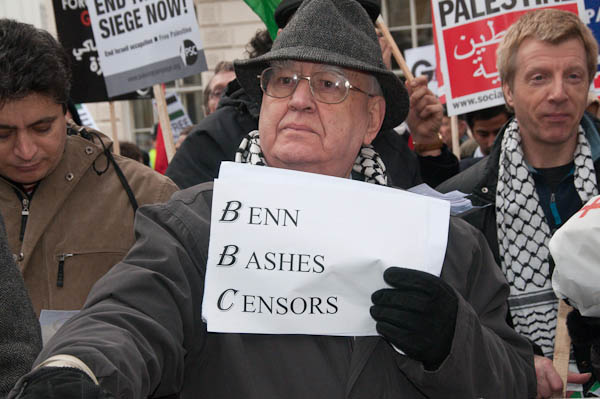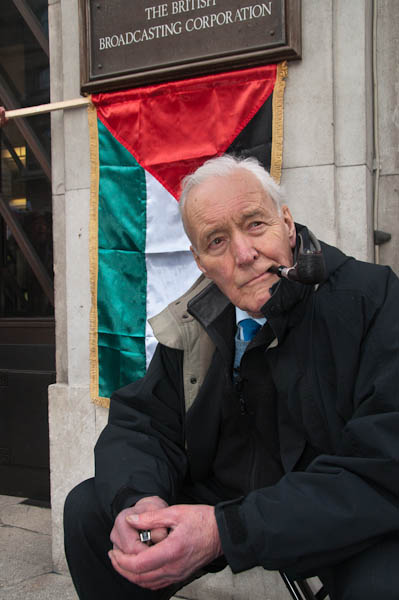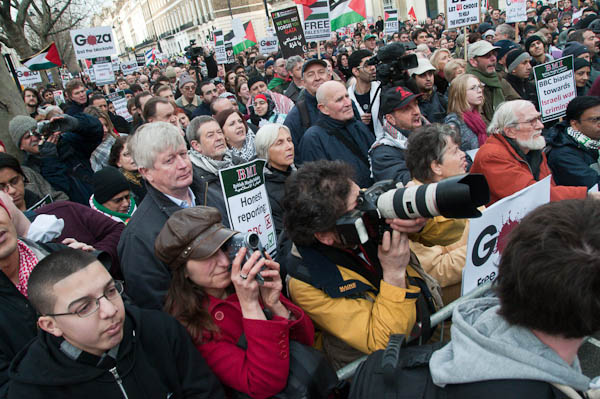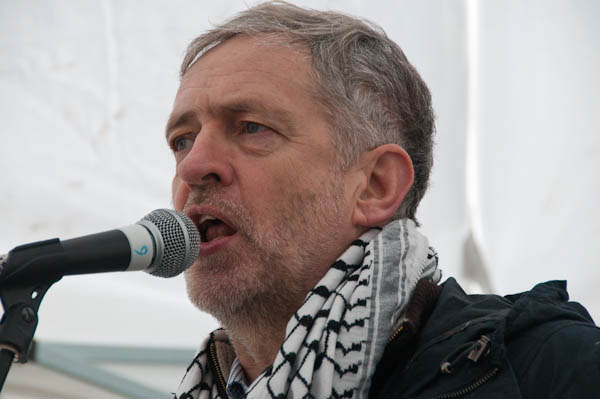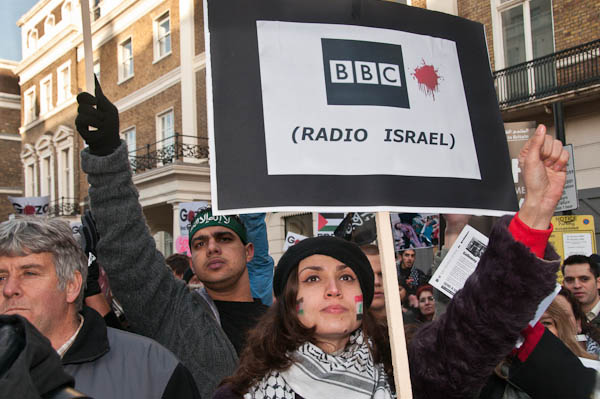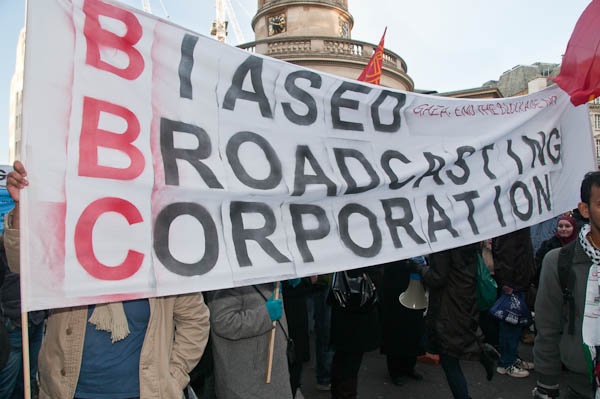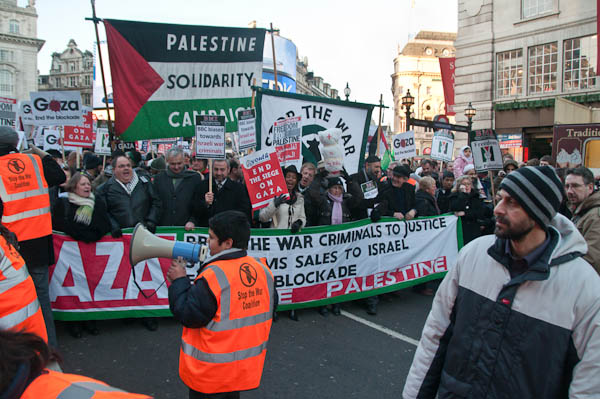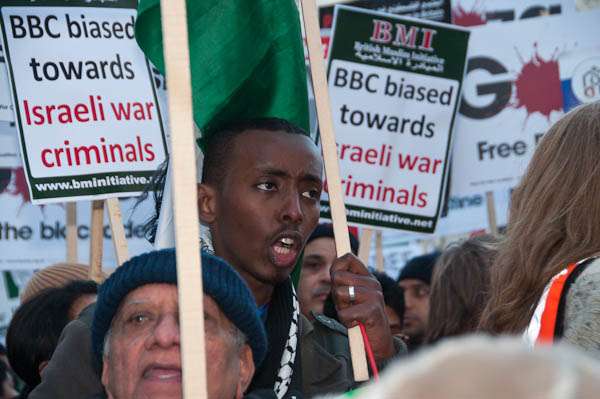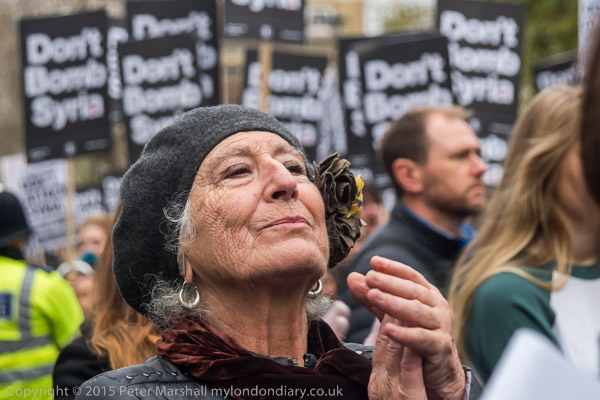
Several thousands had come to Downing St on Saturday 28th November 2015 to urge MPs not to support British air strikes on Syria and more arrived as the rally was beginning bring the number up to perhaps ten thousand.
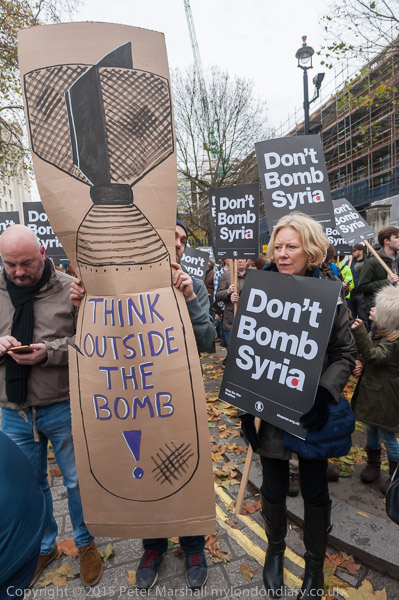
Police who had tried to restrict the crowd to the wide pavement area were forced to stop traffic on the southbound carriageway, but put in a row of barriers so they could keep northbound traffic moving.
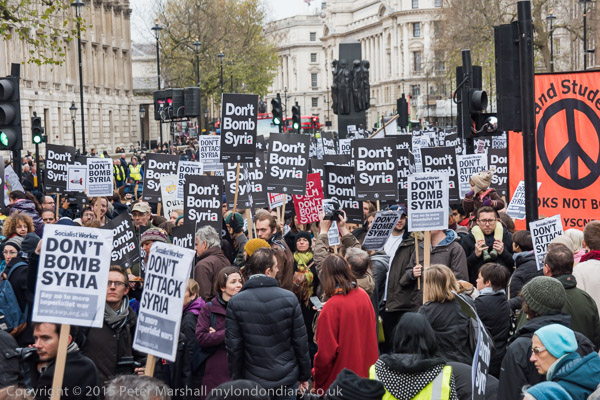
There were a long list of speeches – you can read a partial list and see photographs of most of them on My London Diary.
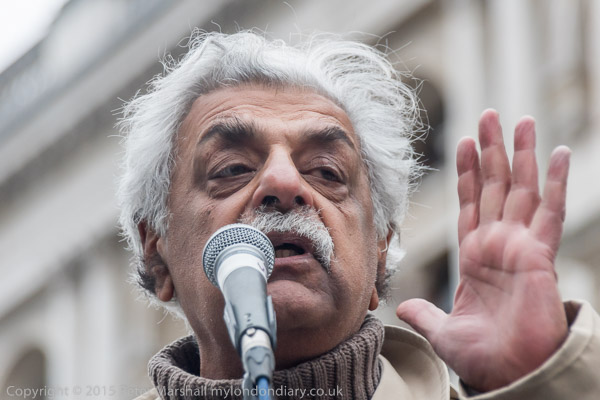
The speakers called for the need to take effective action against the Turkish complicity in Daesh oil exports, in which members of Erdogan’s family take a leading role, and against what Tariq Ali described as “the obscenity of the Wahabi regime in Saudi Arabia” which provides the fanatical religious basis and much funding for Daesh. And, always in the background, the continuing crisis over Palestine.
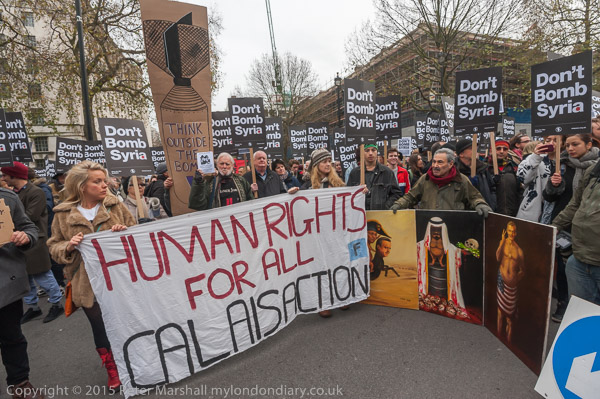
But there seemed to me to a glaring omission. As I wrote, I was there “with notebook poised ready to write down the names of the speakers representing the Syrians and the Syrian Kurds, who should surely have been at the forefront of this protest rather than so many old ‘Stop the War’ war-horses. None came, not because none were available or willing to speak, but because the politics of those most closely involved don’t accord with those of Stop the War.”
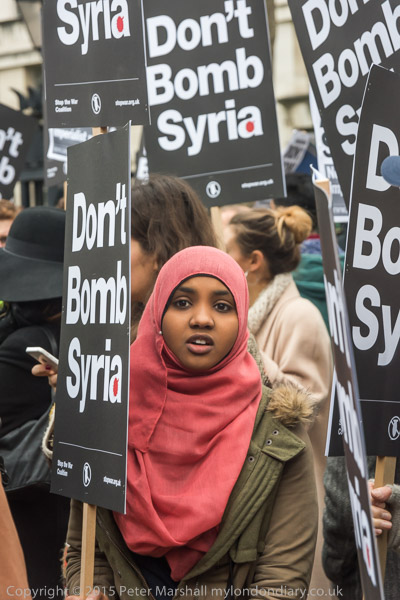
Throughout the speeches some protesters had been trying to move across onto the roadway directly in front of Downing Street. Eventually so many moved past the barriers that it became impossible for the police to force them back and keep the road clear for traffic.
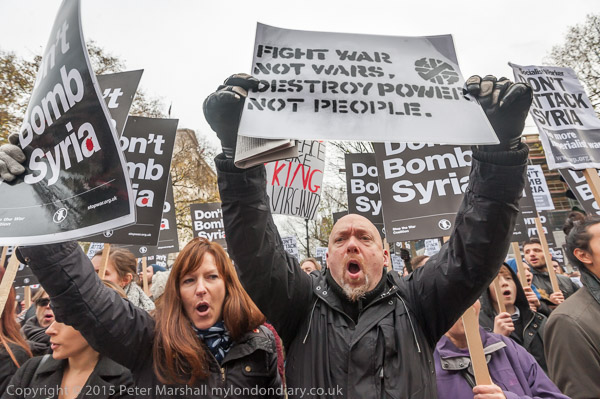
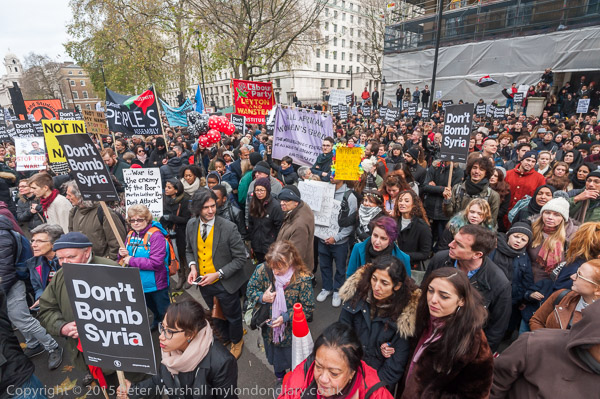
Hundreds then sat done on the road and were still there chanting ‘Don’t Bomb Syria’ and other slogans well after the speeches had ended. After around an hour after police reinforcements arrived.
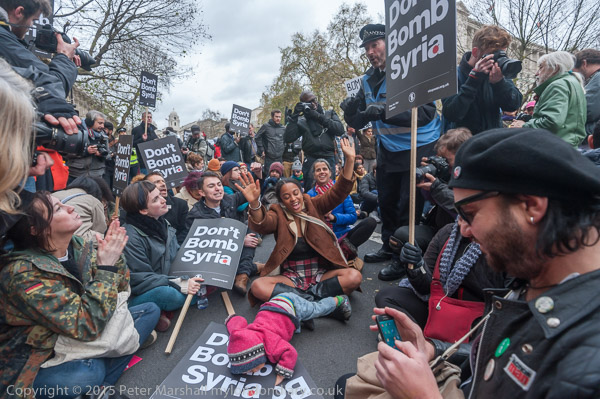
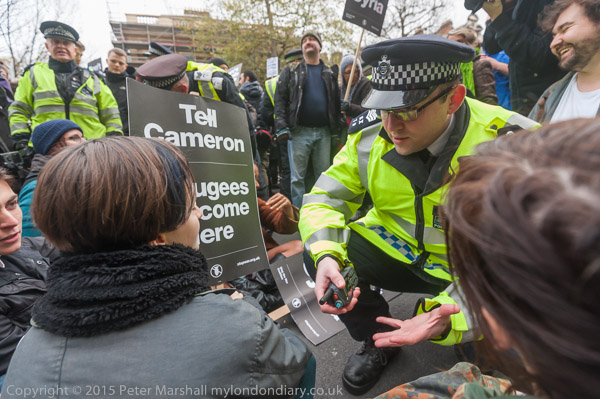
Previously police had been trying to persuade the protesters to stand up and leave the road with little success, but now they were warned they would be arrested if they failed to do so. Some were more reluctant than others to move, but I think eventually all did and I saw no arrests.
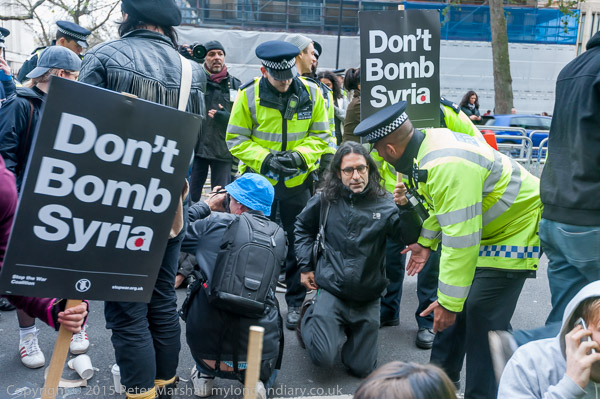
In September 2014 the UK Parliament had voted overwhelmingly in favour of British air strikes against ISIS in Iraq, but Parliament had also blocked the government’s plans for military action against Syria after the 2013 Ghouta chemical attack.
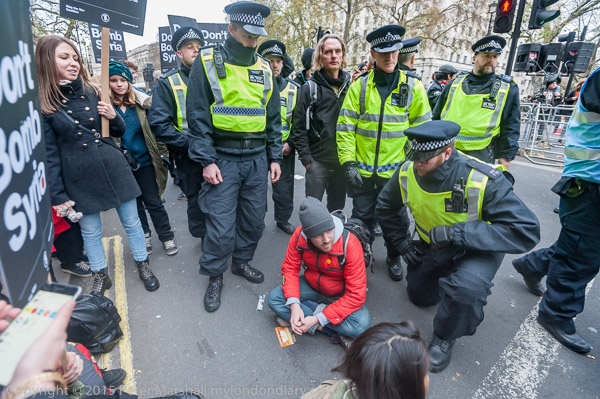
PM David Cameron had repeated calls for air strikes following a mass killing of tourists by an Islamist militant group in Tunisia, but it was only after the terrorist attacks in Paris in November 2015 that the House of Commons approved air strikes against ISIL in Syria – which began hours later in December 2015. In the next 15 months the RAF carried out 85 strikes – and there have been others since.
Many more pictures on My London Diary:
Don’t Bomb Syria
Speakers at Don’t Bomb Syria
Don’t Bomb Syria Blocks Whitehall
Flickr – Facebook – My London Diary – Hull Photos – Lea Valley – Paris
London’s Industrial Heritage – London Photos
All photographs on this page are copyright © Peter Marshall.
Contact me to buy prints or licence to reproduce.
